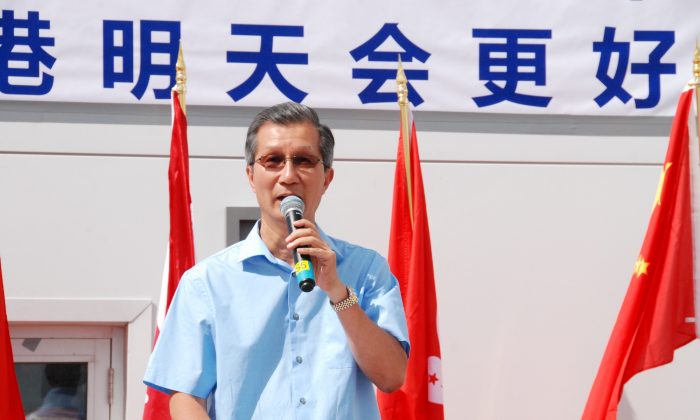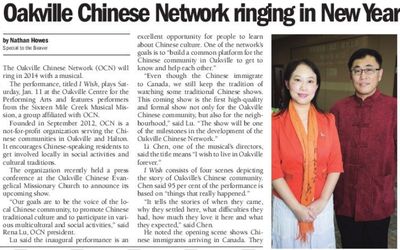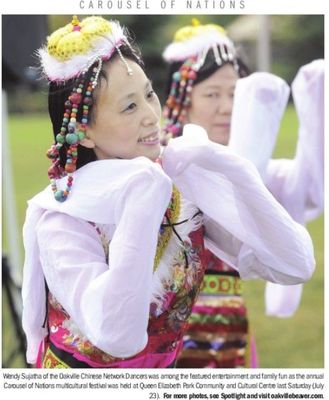
Bridge-Building With Michael Chan
Among many Chinese immigrants who came to Canada in the 1960s and established their own career in the 1980s, Michael Chan felt uncertain about his future in Canada when he first came here. Chan's interests in politics encouraged him to become a political activist in Markham in the 1990s. China's reopening at this time allowed people like Chan to hear about the political developments back home that many Chinese Canadians have been concerned about for decades. After being elected a Liberal representative in 2007, he became the leading Chinese Canadian political figure in Markham that connects people back to their homeland.
In 2019 Hong Kong faced a major political crisis as the Communist regime in Beijing attempted to enforce a political reform to set up an annexation of Hong Kong, which led to a mass-scale student riot all over the city. Chan, who shares Cantonese background with many Hong Kong citizens while being a Liberal party member, actively participated in several demonstrations in Markham and condemned the violence of the riot, here is the link to the media coverage. Disregarding his identity of being a Canadian politician, Chan devoted himself to his identity as a Chinese immigrant to help express Chinese Ontarians' will for peace and liberty in China. Chan also participated in the demonstrations in Ontario that expressed sympathy and condemned violence during the 2014 Hong Kong riot, while he was an active member of the Ontario Legislature. What Chan's sympathy and actions represent is clear: like many Chinese Canadians who reconnected with China in the late 1970s, Chan also wants to strengthen Chinese Canadians' cultural ties with their homeland.
Chan's effort to connect Chinese Canadians to their homeland helped establish a constant flow of information, and a channel for Chinese settlers to communicate and better express themselves. In 2012 Chan was appointed the Minister of Citizenship and Immigration, succeeding Charles Causa, a Portuguese immigrant who helped connect Portuguese Canadian communities in Mississauga to Europe and homeland Portugal.

Heritage Beyond the Past
Through heritages, trade and political representations, a bridge between China and the Ontarian Chinese diaspora is built, and remains a crucial form of connection that represents the social significance Chinese immigrants have in Canadian society. This bridge is maintained by many Chinese people like Michael Chan, who devote themselves to their Chinese identity, combating racism with their cultural identity and communal bonds across the Pacific. For more than a century has Chinese immigrants contributed to Canada's economic development, social liberation, and cultural prosperity. Despite being under the discrimination and isolation of racial politics for decades, Chinese migrants' communal connections and cultural significance flourished, and remain just as strong and versatile as those who share the bravery to travel far from home and achieve miracles. With Canadian society becoming more and more aware of the contribution and significance of its Chinese diaspora, the bridge that connects the migrants to their homeland, making the Chinese Canadian diaspora an irreplaceable force in making Canada's prosperity and wonderful cultural diversity what it is today.

China's reopening in the 1980s helped immigrants to re-establish connections with their homeland, which inspired many Chinese Canadians to participate in politics and to represent their communities. Many organizations are established in the Greater Toronto Area, such as in Markham, Vaughan and Richmond Hill, that function as networks of information, cultural heritages and economic ties between Chinese Canadian communities and their homeland. These networks offer opportunities for Chinese Canadians to express their culture in Canadian society to combat stereotypes, political discrimination and communal isolation. The history of Chinese Canadians in Ontario, as well as in Canada, shows how Chinese immigrants overcome uncertainty and isolation by bonding with each other to form communities; from the mid 20th century, these communities have become an irreplaceable contributor to Ontario's social and economic prosperity, and many people dedicated their careers to express their communities culturally and politically. The dedication of Chinese Canadian immigrants to carry on their cultural traditions transcend through generations of people, allowing the stories and memories of struggle to be better understood and recognized by contemporary Canadians. The contribution Chinese communities make to Canada's multicultural prosperity is far beyond images and textbooks, and it is important for us to understand and appreciate people's perseverance of cultural heritages that consolidate Canadian society's liberty, freedom and openness to diversity.
